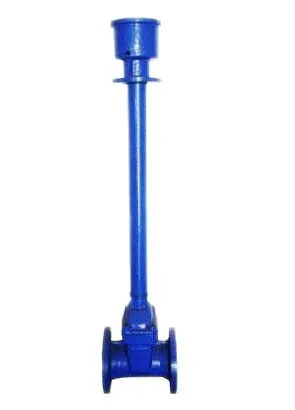
Buried Soft-seated Gate Valves
Key Factors for Selecting Buried Soft-Seated Gate Valves
When selecting buried soft-seated gate valves, it is necessary to consider multiple factors to ensure that the chosen valve meets the actual requirements and possesses reliability.1. Environmental conditions
When installing buried soft-seated gate valves, it's crucial to consider specific environmental conditions. Factors such as the type of underground soil, groundwater levels, and soil corrosiveness should be taken into account. In environments prone to corrosion, selecting valve materials with excellent corrosion resistance is essential. Similarly, in areas with high groundwater levels, ensuring effective waterproofing of the valves becomes necessary.2. Using media
Understanding the types of media, pressure, and temperature parameters to be conveyed in the pipeline system, selecting valve materials and sealing materials that meet the characteristics of the media is essential. Different media have different requirements for valve materials and sealing performance, and selection should be made based on the actual conditions.3. Traffic demand
Based on the flow requirements of the pipeline system, determine the diameter size of the buried soft-seated gate valve. An undersized diameter may restrict flow, affecting the operational efficiency of the pipeline system; an oversized diameter may increase costs and potentially lead to operational inconvenience.4. Operation method
Consider the operation modes of buried soft-seated gate valves, including manual operation and automated control. Select the appropriate operation mode according to actual needs to ensure that the valves can be conveniently operated and controlled.5. Sealing performance
The sealing performance is one of the key indicators of buried soft-seated gate valves. Selecting valves with reliable sealing performance can effectively prevent fluid leakage and ensure the safe operation of pipeline systems.6. Maintenance and upkeep
Consideration should be given to the maintenance requirements of buried soft-seated gate valves, including regular inspection, cleaning, and lubrication. Choosing valves that are easy to maintain can reduce the operating costs of pipeline systems and prolong the service life of the valves.When selecting buried soft-seated gate valves, it is essential to consider various factors comprehensively, including environmental conditions, media characteristics, flow requirements, operation modes, sealing performance, maintenance needs, and manufacturer reputation, to ensure that the chosen valves meet the actual requirements of the pipeline system and possess reliability and safety. Through rational selection and strict quality control, it is possible to effectively improve the operational efficiency and safety of the pipeline system, reduce operating costs, and achieve long-term stable operation.
